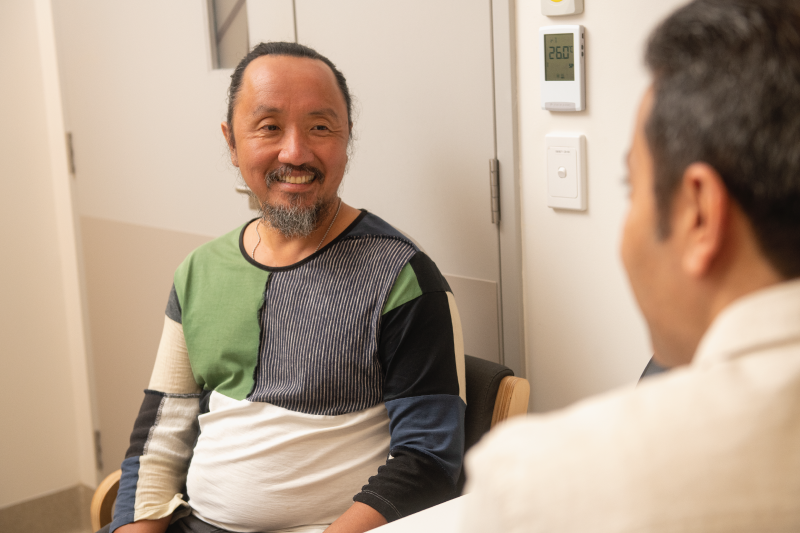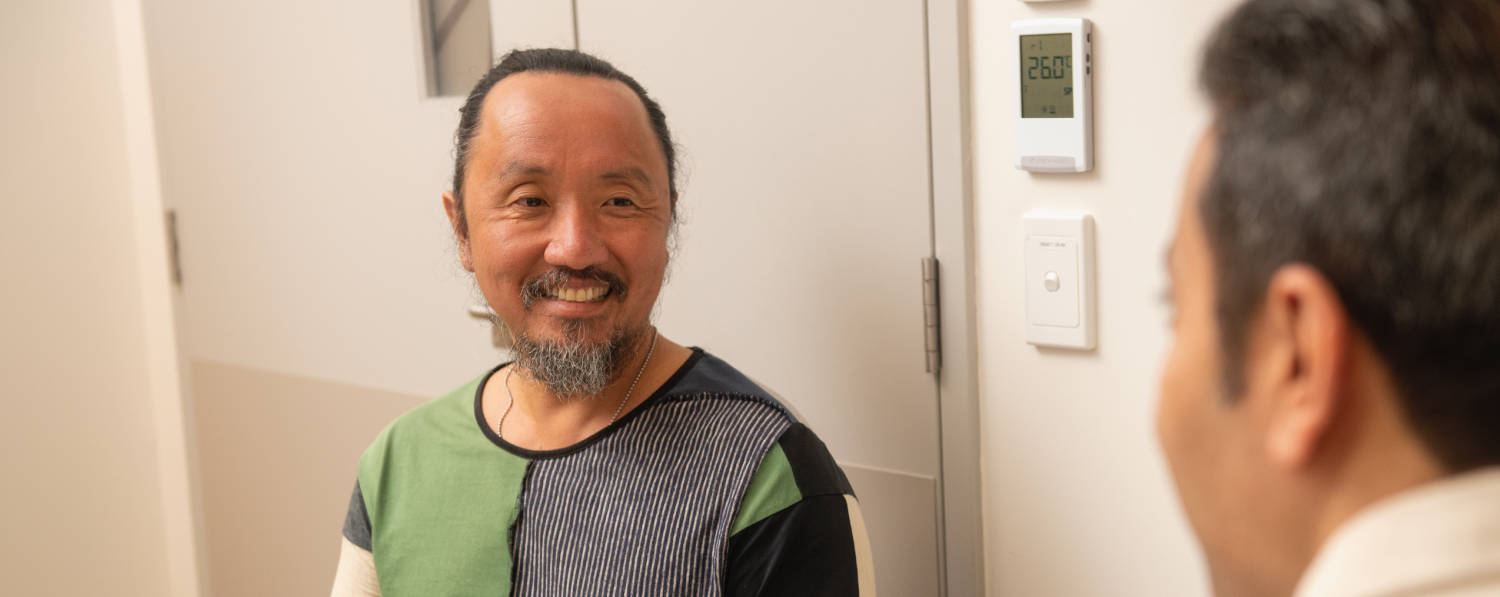What are the treatment options for prostate cancer?
Prostate cancer affects up to 1 in 10 men in Australia by the age of 75 years.1
If you or a loved one are diagnosed with prostate cancer, there are various treatment options available.1-3 Receiving a cancer diagnosis can be emotional and life-changing, and it is natural to feel a range of emotions such as disbelief, anxiety, sadness and/or anger.4 It's important to reach out to your doctor and treatment team with any questions or concerns that you have, at any time.
Prostate cancer treatment depends on several factors. These may include:1-3
- Stage of the disease - if it has spread to another part of the body
- Grade of cancer - what the cells look like under a microscope
- Risk of the cancer spreading - this is based on the stage and the grade
- Severity of symptoms
- Your overall health, age and personal preferences.
If your prostate cancer is deemed low risk and is localised to the prostate gland, meaning it hasn’t spread to other body parts, your doctor may recommend active surveillance. This is where your healthcare team will monitor the cancer and your symptoms with regular tests and scans, initiating treatment only if there are any concerning changes.2 Alternatively, you might be put under a management plan called ‘watchful waiting’. This might be recommended if you are older or if you have other health issues that would make prostate cancer treatment difficult. The aim here is to maintain quality of life, so if anything changes you may be given treatment to manage symptoms or slow the cancer growth.2,3
Treatment options that aim to remove, reduce or otherwise damage the cancer include:2,3
- Surgery - to remove the prostate (called a prostatectomy) and any surrounding parts that may have been affected, such as the lymph nodes or part of the urethra
- Radiation therapy - can be used in early-stage prostate cancer, or when surgery is not an option; there are several types of radiation therapy, from external beam (where the radiation comes from a machine outside your body) to internal radiation therapy (where radioactive ‘seeds’ are inserted to directly target the surrounding area)
- Hormone therapy - sometimes called androgen deprivation therapy (ADT) this is where levels of certain hormones that help prostate cancer to grow are reduced, either by removing the organs that produce these hormones or by drugs that stop their production or block their action
- Chemotherapy - utilises drugs that kill cancer cells or slow their growth, for prostate cancer chemotherapy may be combined with ADT or used afterwards
- Immunotherapy - harnesses your own immune system to recognise and attack cancer cells
- Targeted therapy - these medicines are designed to attack only cancer cells, leaving healthy cells alone, by blocking how prostate cancer cells grow, divide, interact with other cells or repair themselves
- High-intensity-focused ultrasound therapy - high-energy sound waves create heat which can destroy cancer cells using an endorectal probe to target the prostate.
There are also clinical trials that you may be eligible for, just ask your doctor if this is something you would like to know more about. For more information on clinical trials, click here.
Once treatment has been completed, you may still need to check in with your doctor for a period of time. This follow-up period may include physical examinations, x-rays, or scans, or other tests to monitor your health, help identify and manage any continuing side effects, and to check the status of the cancer.2,3
Remember, your treatment will be recommended based on your unique situation in collaboration with your healthcare team. Your doctor can answer any questions or help you navigate any concerns specific to you.
More information
Find out more about prostate cancer, its symptoms and your treatment options
- Health Direct. Prostate Cancer. Available at: https://www.healthdirect.gov.au/prostate-cancer (accessed August 2025).
- Cancer Australia. Prostate cancer: Treatment. Available from: https://www.canceraustralia.gov.au/cancer-types/prostate-cancer/treatment (accessed August 2025).
- Cancer Council. Understanding Prostate Cancer. Available at: https://www.cancer.org.au/assets/pdf/understanding-prostate-cancer-booklet (accessed August 2025).
- Cancer Council . Emotions and cancer. Available from: https://www.cancer.org.au/assets/pdf/emotions-and-cancer-booklet (accessed August 2025).





